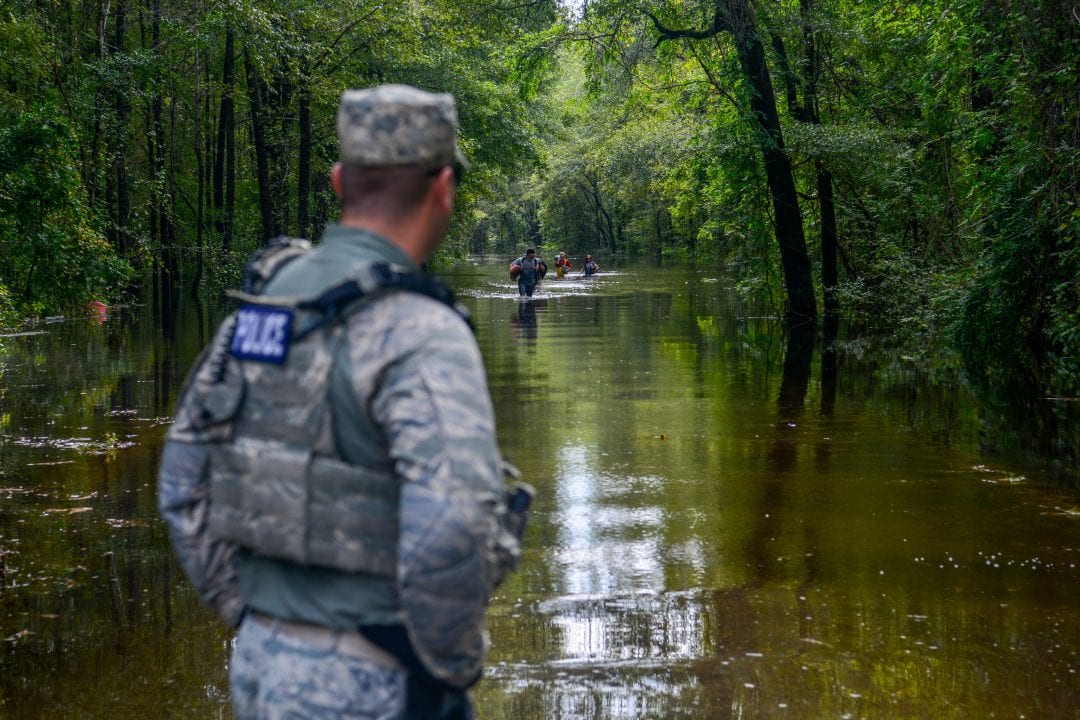
Stony Brook researchers found that Hurricane Florence was significantly worsened by the effects of climate change in a Sept. 11 study.
The study found that forecasted rainfall over the Carolinas increased by over 50 percent and the storm would be 80 km larger in diameter at landfall due to human-induced climate change.
“The impacts of climate change are very real, now, and one of the ways they manifest themselves is through changes in extreme weather,” Dr. Kevin Reed, an assistant professor in the School of Marine and Atmospheric Sciences, said.
Over a week after Florence hit and the study’s prediction was released, the Carolinas are still struggling with flooding and extensive damage. Many residents have been left homeless.
Reed, along with Stony Brook Ph.D. student Alyssa Stansfield and two other researchers, ran a climate model to obtain “near real-time experimental forecasts of Hurricane Florence,” according to the SoMAS website.
The climate model was initialized while Florence was happening and it was run for only seven days, an unusually short period of time for climate models. Although it wasn’t the first time scientists tried to calculate the impact of climate change based on the severity of extreme natural events, it was the first time it was done while the storm was happening.
One forecast represented conditions as they are now. The other, the modified forecast, subtracted a climate change signal from the initial conditions, representing what conditions might be if human-induced climate change wasn’t a factor.
Global rises in air and sea temperature increased the storm’s capacity to carry precipitation. This was also the case for Hurricane Harvey last year, which set an all time U.S. rain record for a tropical cyclone.
The study was released quickly, despite a lack of peer review, in hopes of spurring a broader conversation about climate change while its effects were being felt.
“We really just wanted to get people thinking about how climate change is affecting their everyday lives, and that it is real, and it’s not something in the future,” Stansfield said. “It’s really happening now.”
Even though the research team is still assessing the accuracy of the study, Reed said that the storm’s actual landfall seems to be well within the range that the model would have predicted.
“While the study is based on only a single climate model so the specific results may be open to question (as the authors themselves acknowledge), there is little question that the main conclusion of the study, i.e. that climate change is exacerbating the impacts of landfalling hurricanes through increased flooding rains for example, is valid,” Michael Mann, a distinguished professor of atmospheric science at Pennsylvania State University, wrote in an email.
The research has received national attention, with coverage from outlets such as Ars Technica, Bloomberg and Buzzfeed News.
“Professor Reed’s study is fascinating and it advances the scientific and public discourse over the potential to attribute extreme weather events and their impacts to climate change in real time,” Mann said.






















